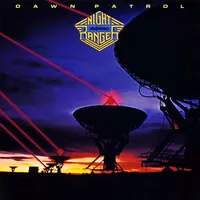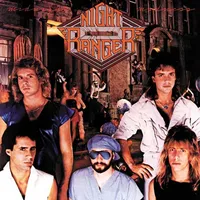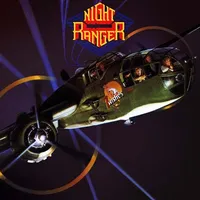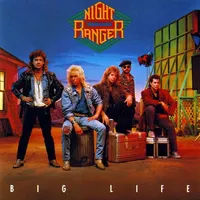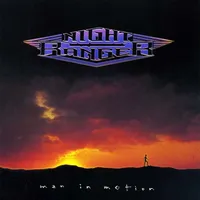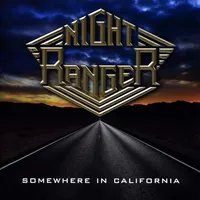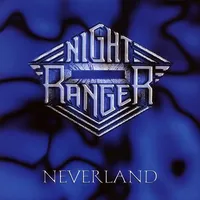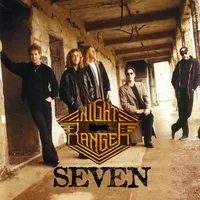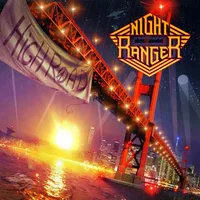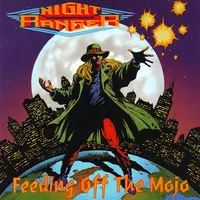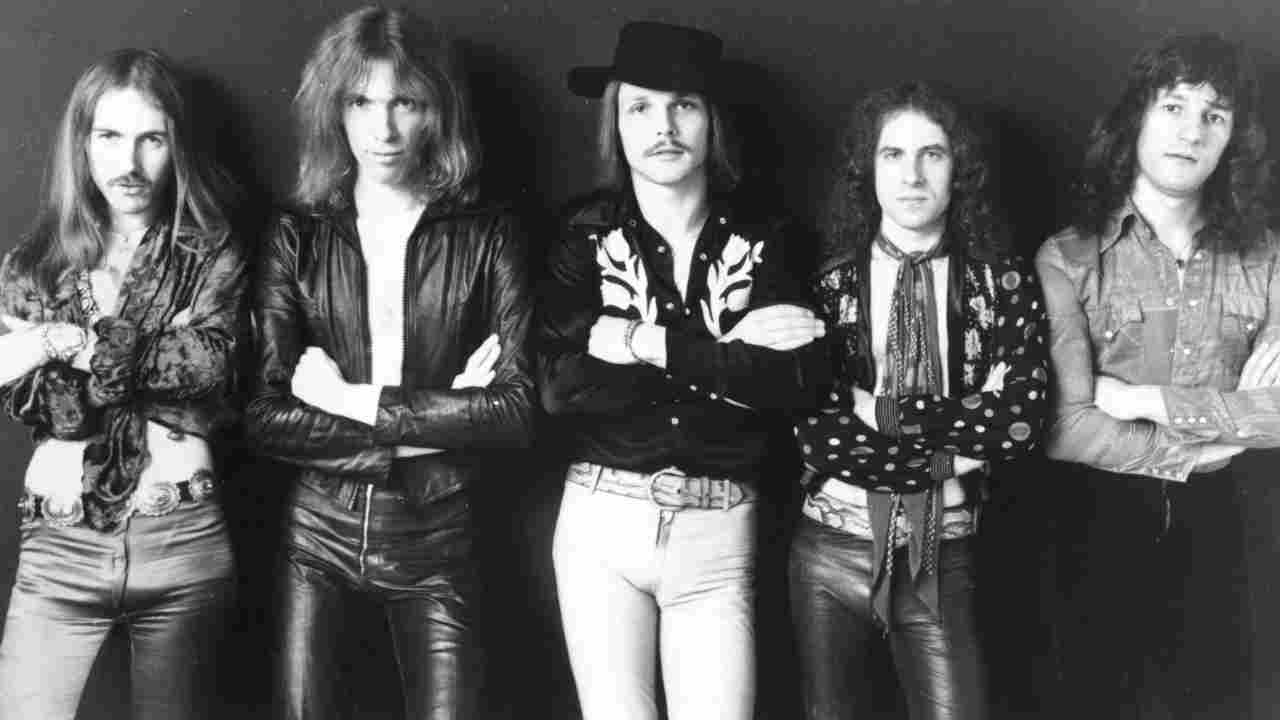The Night Ranger albums you should definitely own
Still going strong after more than 40 years, AOR cult crew Night Ranger have sold millions of albums on the back of some all-time classic songs

In any genre of music, there are those who become superstars, those who never make it big, and in-between, those who climb that greasy pole almost to the top, only to slip back down into relative obscurity.
Such was the fate of Night Ranger, one of the great all-American rock bands. They couldn’t quite reach the level of success that was enjoyed by the giants of AOR: Boston, Journey, Foreigner, Survivor, Toto. But while many great melodic rock bands were destined to remain cult heroes – bands such as New England, Balance, Valentine and Diving For Pearls – it was a different story for Night Ranger.
In the mid- to late 80s, these guys sold ten million records worldwide. They had five Top 20 hits in the US. Among those was the mega-hit Sister Christian, one of the all-time classic power ballads, and a song that resonated so powerfully in the American psyche that it was later voted No.32 in VH-1’s 100 Greatest Songs Of The 1980s. It also featured in the hit movie Boogie Nights and the bestselling videogame Grand Theft Auto: Vice City.
It was in 1980 that Night Ranger formed in San Francisco. Originally named Ranger, the band comprised Jack Blades on bass and lead vocals, Brad Gillis and Jeff Watson on guitars, Alan Fitzgerald on keyboards and Kelly Keagy on drums and lead vocals. Their influences were varied: Deep Purple, Van Halen, Journey. Their twin-guitar attack was inspired by Thin Lizzy. But as Blades said: “Our sound was distinctly American, because that’s who we are.”
That sound was perfectly realised on the band’s first album, Dawn Patrol, which sold a million in the US. The follow-up, Midnight Madness, was an even bigger hit, thanks to Sister Christian. But the hits dried up after Seven Wishes in 1985, and by the end of that decade the band split up.
Jack Blades subsequently formed the supergroup Damn Yankees with Ted Nugent and Tommy Shaw of Styx. They had two platinum albums. But in 1996, the classic Night Ranger line-up reunited. And while there have been various personnel changes since then, this great band have continued making music, with 2021's ATBPO their most recent release.
Back in ’84, they laid their cards on the table in the anthem (You Can Still) Rock In America. And as Blades says: “That song is as true today as it was back then.” He and Night Ranger are still living the dream.
Sign up below to get the latest from Classic Rock, plus exclusive special offers, direct to your inbox!

Right before the band started recording this first album, guitarist Brad Gillis left to tour with Ozzy Osbourne as a replacement for Randy Rhoads, who had died in a plane crash in March 1982. Gillis promised he would return to Night Ranger. The other guys feared he might not. But he was true to his word, and what the band created was the best American hard-rock debut since Van Halen’s.
A supercharged, ultra-melodic sound was defined on brilliant songs such as Don’t Tell Me You Love Me, Sing Me Away, Eddie’s Comin’ Out Tonight and Young Girl In Love. The album quickly went platinum. Night Ranger had hit the ground running.
After selling a million copies of Dawn Patrol, the band ended up broke when Boardwalk, their label, went bust. But a new deal with MCA quickly arrived, and with their second album Midnight Madness came the biggest hit of Night Ranger’s career.
Drummer Kelly Keagy had written a song about his sister, named Christy, and how, as a teenager, she and her friends loved to cruise around their home town. The song, retitled Sister Christian and sung by Keagy, soared to No.5 on the US chart. And there were other great songs on the album, from the gonzoid (You Can Still) Rock In America to the beautiful Let Him Run.
Jack Blades describes the band’s third album as “a really classy record”. It was also the last genuine hit of the band’s golden era. During a tour with ZZ Top, Blades received some simple career advice from ZZ guitarist Billy Gibbons: “Just do what you do. Make another great record.” And they did exactly that with Seven Wishes.
The album’s two classy power ballads, Sentimental Street and Goodbye, reached the US Top 20. So too did masterful AOR song Four In The Morning. And there was also plenty of muscle in some of the album’s deeper cuts, in particular Night Machine and This Boy Needs To Rock.
In a year when so many huge rock records were released – including Appetite For Destruction, Hysteria and Whitesnake’s 1987 – Night Ranger’s fourth album was lost in the shuffle. The first single from it was The Secret Of My Success, the title song for a hit movie starring Michael J. Fox. But while the movie lived up to its title, the single bombed. And so did the two that followed – acoustic ballad Hearts Away and bouncy rocker Color Of Your Smile.
Big Life is a fine album. Love Is Standing Near and I Know Tonight are two of the best songs Night Ranger ever recorded. But with their popularity in decline, the writing was on the wall.
At the end of the 80s, Night Ranger couldn’t get arrested. There were some great songs on Man In Motion – just not that one big hit they needed.
Although keyboard player Alan Fitzgerald had gone, replaced by Jesse Bradman, the band’s sound remained unchanged on finely crafted songs such as Restless Kind, Reason To Be and I Did It For Love, the latter written by Russ Ballard. But after four singles flopped, Man In Motion stalled at No.81 in the US. In 1989, the band split up. And when they re-formed two years later, Jack Blades was otherwise engaged with Damn Yankees. Without him, Night Ranger would be lost.
Somewhere In California (Frontiers, 2011)
What Night Ranger delivered in 2011 with Somewhere In California was their best record since the 80s. Although Jeff Watson had left the group, new guitarist Joel Hoekstra fitted in perfectly. And among the 11 songs were some genuine late-career classics.
On the sort-of title track, Growin’ Up In California, the Night Ranger story is transformed into a sun-kissed, kick-ass anthem. And the ballad Time Of Our Lives is one of their very best.
Ten years on from Big Life, Night Ranger’s classic line-up returned on Neverland, but in the era of grunge and nu metal, the album failed to chart in the US. On a purely artistic level, however, Night Ranger were back on track. The band’s previous album, Feeding Off The Mojo, had been recorded by the trio of Brad Gillis, Kelly Keagy and bassist/vocalist Gary Moon.
It was Night Ranger on half power. But with the five original members together again on Neverland, their signature sound was restored. The album’s title track is heavy with plenty of melody, a real humdinger. And among several ballads is a masterpiece: As Always I Remain.
The title of the band’s eighth album was an attempt to rewrite history: an acknowledgement that their 1995 album Feeding Off The Mojo – featuring only two original members – was best forgotten. Adding to the confusion was the similarity between this title and that of their 1985 album Seven Wishes.
For all that, the music on Seven is straightforward. On the two standout tracks there are nods to classic British rock: a shout-out to the Stones on Sign Of The Times, and Beatles-style psychedelia on Don’t Ask Me Why. Seven proved to be the last album ever made by Night Ranger’s original line-up. Good that they ended it on a high.
More than thirty years into their career, Night Ranger still had plenty of gas left in the tank. Their 2014 album, High Road, is proof. Its title track has a killer chorus and a feelgood vibe crystallised as Blades sings: ‘It’s a beautiful day to be dreaming.’ Knock Knock Never Stop is ballsy rock’n’roll, and there’s a clever left turn on L.A. No Name, an acoustic guitar instrumental brilliantly played by Gillis and Hoekstra.
Following the album’s release, Hoekstra left Night Ranger to join Whitesnake, and the man he replaced, Doug Aldrich, hooked up with Blades and Journey drummer Deen Castronovo to form supergroup Revolution Saints. It’s a small world.
...and one to avoid
Feeding Off The Mojo (Drive Entertainment, 1995)
In the early 90s, a new version of Night Ranger was launched: a power trio in which Brad Gillis and Kelly Keagy were joined by bassist/vocalist Gary Moon, who’d been in Three Dog Night in the late 80s. This line-up made only one album – and it was just as well. Despite a couple of good songs – Precious Time, The Night Has A Way – the album lacked both energy and the sizzle of two guitarists, while Moon’s hammy singing didn’t help.
Feeding Off The Mojo? On the contrary, Night Ranger had lost it. And it was only rediscovered when the original band reunited for 1997’s Neverland.
Freelance writer for Classic Rock since 2005, Paul Elliott has worked for leading music titles since 1985, including Sounds, Kerrang!, MOJO and Q. He is the author of several books including the first biography of Guns N’ Roses and the autobiography of bodyguard-to-the-stars Danny Francis. He has written liner notes for classic album reissues by artists such as Def Leppard, Thin Lizzy and Kiss, and currently works as content editor for Total Guitar. He lives in Bath - of which David Coverdale recently said: “How very Roman of you!”
